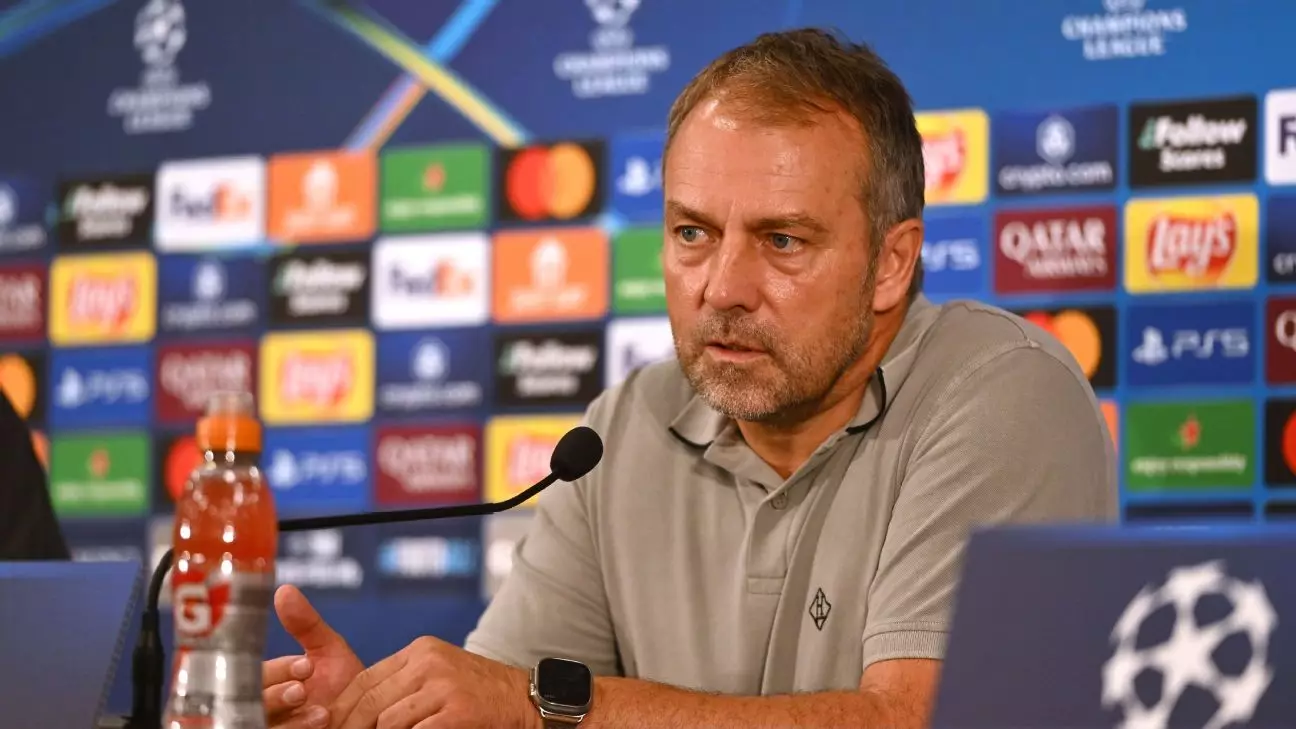FC Barcelona, under the guidance of Hansi Flick, is navigating a challenging phase as the football season picks up pace. While the team has begun the campaign with a promising five victories in LaLiga, it recently encountered its first setback against AS Monaco in the UEFA Champions League. Flick remains steadfast in his approach, asserting that his squad can handle the rigorous demands of back-to-back fixtures despite facing a wave of injuries. He maintains a promising demeanor, reflecting his belief in the capability of his players to step up even in the face of adversity.
However, the question of whether Barcelona can maintain this momentum amidst mounting injuries raises concerns about squad depth and player welfare. With numerous key players sidelined, including Ronald Araújo and Gavi, the resilience of the remaining squad members will be put to the test. Flick, while reluctant to make excuses, acknowledges the growing concerns within the football community regarding player workloads, echoing sentiments expressed by figures such as Manchester City’s Rodri about potential strikes over the congested fixture schedule.
The Burden of Injuries
Barcelona’s injury list is alarming, now comprising pivotal players that could significantly impact the team’s performance. With seven players currently out of commission, the task ahead is undeniably daunting. Yet Flick opts for a professional approach, ignoring his absences and concentrating on the players available for selection. His focus remains on preparing his squad for upcoming challenges, including an important clash against Villarreal, a team that has started their season unbeaten.
The coach’s camaraderie with his injured players presents an insightful perspective on team management. Flick insists on monitoring their recovery closely, revealing both empathy and strategic foresight. His assurance about the recoveries of players like Frenkie de Jong and Gavi shows a commitment to optimal performance healthily rather than hastily. This prudence is vital, given the physical toll taken by an exhausting schedule.
As the situation stands, Flick’s commitment to maintaining high performance standards while managing workloads is commendable. He emphasizes the need for “new legs” on the field to alleviate the stressors associated with a congested fixture list. Nevertheless, his insistence on pushing forward without making excuses reflects a strong mentality that is characteristic of successful teams.
Flick’s views align with a growing consensus that football’s governing bodies, UEFA and FIFA, must reassess the calendar to safeguard the health of players. The demand for a condensed match schedule strains not only the athletes’ performance levels but also their overall well-being. It brings to light a potential conflict between commercial interests and players’ health, hinting at the necessity for a more balanced approach to scheduling.
Preparing for Villarreal
Looking ahead to the match against Villarreal, Barcelona will have to strategize effectively to secure their position in LaLiga and regain lost confidence following the Champions League defeat. Villarreal has proven to be a formidable opponent, with a solid record that includes three wins and two draws. The stakes will be high for Flick’s side as they seek to reclaim their winning mentality while contending with injuries and suspensions, notably the absence of Ferran Torres.
Flick’s emphasis on tactical versatility and player confidence will be crucial in this upcoming fixture. His remarks about the team’s defensive formations after reviewing game footage indicate a focus on fostering a strong, cohesive unit capable of withstanding Villarreal’s offensive threats. He aims to instill a sense of self-belief within the team, which is pivotal in matches against opponents who enjoy possession-based football.
Amidst scrutiny following a critical misstep against Monaco, goalkeeper Marc-André ter Stegen finds himself under the spotlight. Flick’s defense of his goalkeeper signals the importance of supporting players through their highs and lows. The coach’s acknowledgment of the natural occurrence of errors in football serves as a reminder of the human element in the sport.
Flick’s commitment to a playing style that encourages build-up from the back underscores the tactical philosophy he has instilled at Barcelona. Emphasizing the idea that mistakes are a part of the game, he highlights the broader narrative of resilience that defines his vision for the team moving forward.
Hansi Flick’s Barcelona faces significant challenges, but their approach underscores resilience and determination. The coming weeks will unveil whether they can navigate the arduous landscape of modern football while protecting their players’ health and maximizing performance capabilities amidst adversity.

